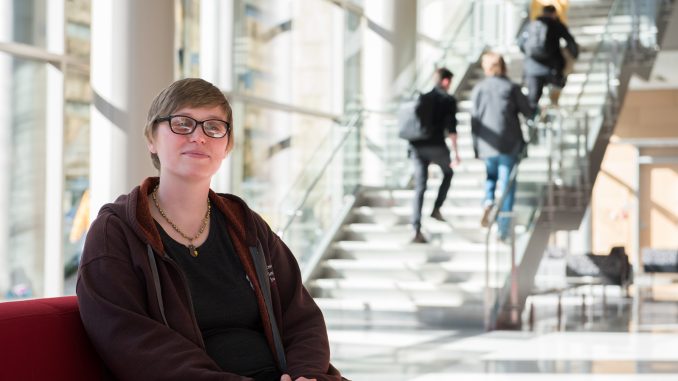
Ingrid Johnson thinks peer recovery specialists bring a “unique sense of wisdom” to the table for people in recovery.
“These are people who have been through the drug treatment program themselves and eventually graduated, so they can act as sort of a peer mentor for the people going through the process,” said Johnson, a sixth-year criminal justice Ph.D. candidate.
Johnson is a research assistant for Steven Belenko, a criminal justice professor conducting a study on the impact of peer recovery specialists.
The PROSPER project, or Philadelphia Revived: Obtaining Success through Peer Encouraged Recovery, seeks to study the effects of implementing peer recovery specialists into the drug treatment court process. The first phase of the study began in December and was finalized in February. The second phase kicked off in January.
Peer recovery specialists are certified mentors who help individuals recovering from mental illness or substance use disorder. Drug treatment courts are a specialized criminal justice program that work with criminal defendants who have dependencies on drug and alcohol.
For a minimum of one year, participants are provided with addiction treatment and support. If the individual remains in recovery for the full time allotted, then the court case does not continue any further. Philadelphia has a drug treatment court on Arch Street near Broad.
The study is being conducted by Belenko, Johnson and Doris Weiland, a senior research associate in the criminal justice department, alongside several members of the Public Health Management Corporation, a nonprofit public health institute in Philadelphia.
The project is a collaborative effort that will explore the use of peer recovery specialists in helping people through their recovery as they complete their programs in the Philadelphia Treatment Court.
Belenko became interested in identifying ways that drug courts can work better with a peer mentoring model, he said.
While working with PHMC, the project received funding in Summer 2016 from the Laura and John Arnold Foundation — a private foundation that focuses on reform in criminal justice and education.
“My work generally is treatment intervention in criminal justice and juvenile justice,” Belenko said. “I’ve always been interested in working on improving treatment in criminal models.”
The study is the first of its kind in the United States, said Archana Bodas LaPollo, the senior research associate in the research and evaluation group at PHMC.
“We’ve started to integrate peer recovery specialists into a lot of behavioral health work,” Bodas Lapollo said. “What hasn’t been done yet is integrating peer recovery support into the drug courts.”
The first phase of the study consisted of focus groups and interviews with members of the court and case managers, along with recruiting clients to be a part of the study. The first phase has been completed.
The second phase, which began in January, will last nine months. During the second phase, 112 newly enrolled treatment court clients will be randomly assigned to either connect with a specialist or receive treatment as usual.
“We can compare those who get the peer recovery specialists and those who do the treatment court process as per usual,” Johnson said. “And see if the people who got the recovery specialists do better and have a better outcome.”
Belenko said overall, he hopes the study will increase treatment attendance, reduce relapse rates and reduce recidivism in treatment court cases.
“We believe that peer specialists help them maintain their recovery program and work effectively with their counselor and participate more meaningful by supporting them, giving them information and navigate through different programs,” Belenko said. “They have a person to talk to outside of the court that they may trust more and that could help them through any issues they have.”
Johnson said the study comes after years of research pointing to the positive effects of peer recovery specialists.
“We’re hoping that the extra support of the peer recovery specialists can help drug court clients go through the program in a way that’s supportive to them,” Bodas LaPollo said. “The core of it is improving outcomes for participants.”
Belenko said the second phase of the study should be finalized in the fall and a report will be finalized a little over a year from now. He added that the department is looking into conducting a larger study on multiple drug courts in different cities.
The specialists will also continue to work and support participants even after the study and until they leave or complete the treatment court.
“It could prove to be a cost-effective model for drug courts and a way for the people who graduated [from treatment court’ who are doing well to give back to the program in a way,” Belenko said. “So I think it will be pretty positive. It has a lot of potential.”
Dylan Long can be reached at dylan.long@temple.edu.
Emily Scott contributed reporting.


Be the first to comment